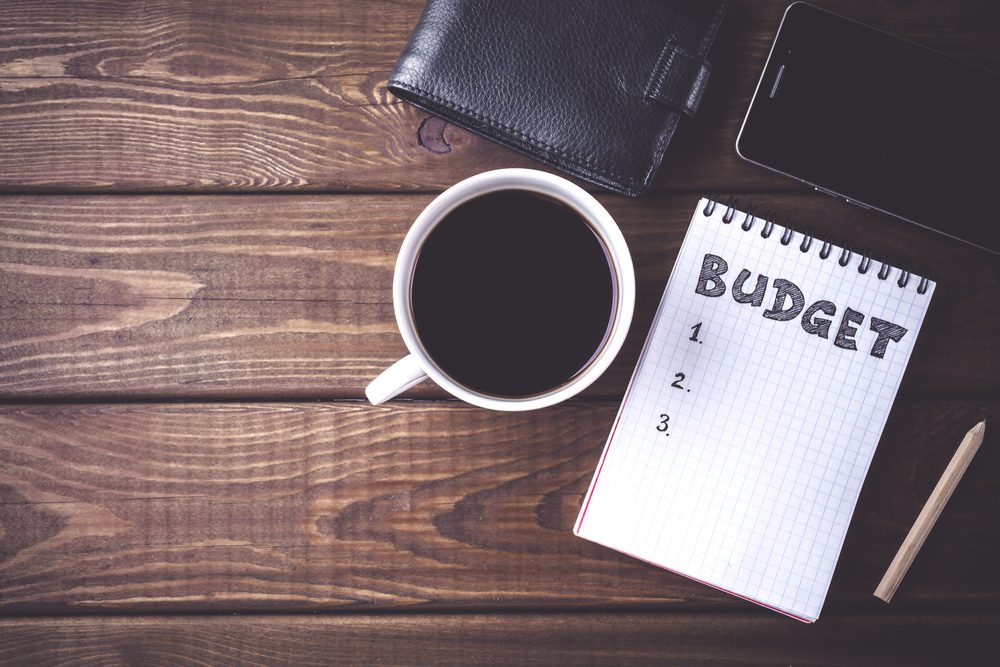Creating a budget has never been an easy task, and sometimes it might become a real headache. But don’t worry because you can do it! How? with a lot of patience and by taking it one step at a time. Don’t take it as a punishment because it’s more like a plan on managing your income in order to avoid unnecessary spending and save more money.
If you’re always anxious about your money, let’s discover together a few tips and tricks on how you can become a pro when it comes to budgeting! And trust me, in no time, you’ll be happy to say: “Goodbye stress!” Welcome to money goals!
1. Calculate your income
Before getting into budgeting your finances, you have to know everything about them. How much do you earn? How much do you spend on your mortgage and how much do you roughly spend on bills or grocery shopping and other things?
Create separate income budget lines for the paychecks you and your spouse make and write everything down. Many people prefer to write down everything on paper to keep everything close at hand and to make changes if necessary. How do you deal with this situation? Do you prefer to record everything in a phone app or on paper?

2. List your expenses
One thing is certain: if you list your expenses, you’ll have better control over where your money goes. And somehow, this made me think about my grandparents, who used to calculate every penny they planned to spend, which I found tedious. Little did I know, I’d end up doing the same! Growing up made me realize that they were smarter because they always had some extra money to give to their grandchildren for every birthday and not only. Haha, I was a lucky kid. Great times!
This sounds a bit complicated, right? But don’t panic! We’ve got you! Start by creating a list of your monthly expenses. Start with the essentials. For example, if you have to commute to your job, then you’ll probably need money for transportation.
How much do you usually spend on food? Are you eating out? Estimate a grocery budget line based on your spending in previous months. In due time, you’ll learn how much you need for every expense, and you’ll learn how to start saving money as well.
Don’t forget that some expenses may vary from month to month because, in some states, water and sewer bills arrive every couple of months. It’s important to keep track of these things in order to avoid being caught by surprise due to expenses you didn’t account for, and end up with little to no money to save at the end of the month.
3. Set a realistic goal
What is your main goal when it comes to budgeting? Before starting anything else, try to remember what determined you to start saving money in the first place. It might have even been that nice vacation you’ve been wanting for years. Or maybe renovating your kitchen?
First and foremost, you must establish a realistic goal that you can easily achieve by the end of the month or year, depending on your strategy. This will help you prioritize your spending but also to be even more careful with your funds.
Writing down your goals will help you maintain a clear view of your budget to see what other adjustments you can make in order to achieve them faster.
Another method that might be easier when you’re trying to put aside some money is to have separate bank accounts that you can easily manage by simply setting a monthly transfer of a certain amount on your pay day.

4. Make a new budget before the month begins
When it comes to budgeting, no situation is really the same and our goals might change simply because some months can be harder than others. So, the safest thing you can do is to work out a new budget before a new month begins. In my case, if it’s September, my family has a lot of birthdays and anniversaries, and I have to prepare myself to buy a lot of gifts. That’s why I
usually create a budget category named “miscellaneous expenses” for September, and I try to adjust it every other month by deleting the things that don’t fit anymore.
You’re probably a bit confused now, and you might ask yourself how to manage this situation. The biggest thing is, not to panic! Try to cut back on some unnecessary spending and move the money to this category of expenses.
Even though this sounds a bit complicated and overwhelming, it’s just a matter of time until you get used to budgeting. Give yourself some time and have patience because I can assure you that the results will end up being fruitful.
5. Adjust your spending to stay on budget
If you’ve come this far, then you’re already familiar with how much your income is and how much money you’re allowed to spend each month. If you’re like me, a shopaholic, then you might have a lot of stuff on your wish list. But let’s be honest now. Do you really need any of it? Overspending is a big problem when it comes to saving money.
That’s why you should check that list twice and see what you can get rid of. Can you give up the idea of buying a new pair of shoes? Because let’s be honest…you probably already have a lot of shoes that you haven’t had the time to wear.
If you still haven’t noticed a big difference in your budget, then try to look closer at your fixed expenses. Could you save some money by changing your home insurance policy? Maybe there are a lot of better offers that can help you save some dollars, even if we’re talking about a once-a-year payment. Keep reminding yourself that even small changes can help you increase your savings. I bet you will be surprised!
How do you adjust your spending?

6. Review your budget regularly
In every domain, consistency is the key, and this applies to your budget as well. You should always keep an eye on it and make the necessary changes when you need to. A lot of unexpected situations can arise that will drastically mess with your budget. What can you do about it?
Take it one day at a time, plan in advance, analyze and see what you can do to move money around just enough to make things better. It can be a medical emergency or maybe your pet needs to get their yearly vaccine.
That’s why it’s a good idea to plan out all your finances at the beginning of every month and put aside some extra cash in case you need it. Make a habit out of checking your budget regularly.
Why is making a budget so important? Because this is how you’ll keep everything under control, and you’ll know where your money goes. You will have the benefit of being in charge of your spending but also of putting aside something for that desired vacation. Whether you believe it or not, this decision can change your life completely and it might be one of the most important decisions you’ll make with your money.
…psst! I almost forgot to tell you that if you enjoyed reading this article, we’ve got you covered with many more amazing ones! Don’t forget to subscribe to our page. Today’s suggestion for you is 6 Amazing Budget-Friendly Hobbies.














One Response
Great info !! Thanks for the “tips” ! SOO HAPPY I didn’t DELETE YOUR site without giving it a look !!